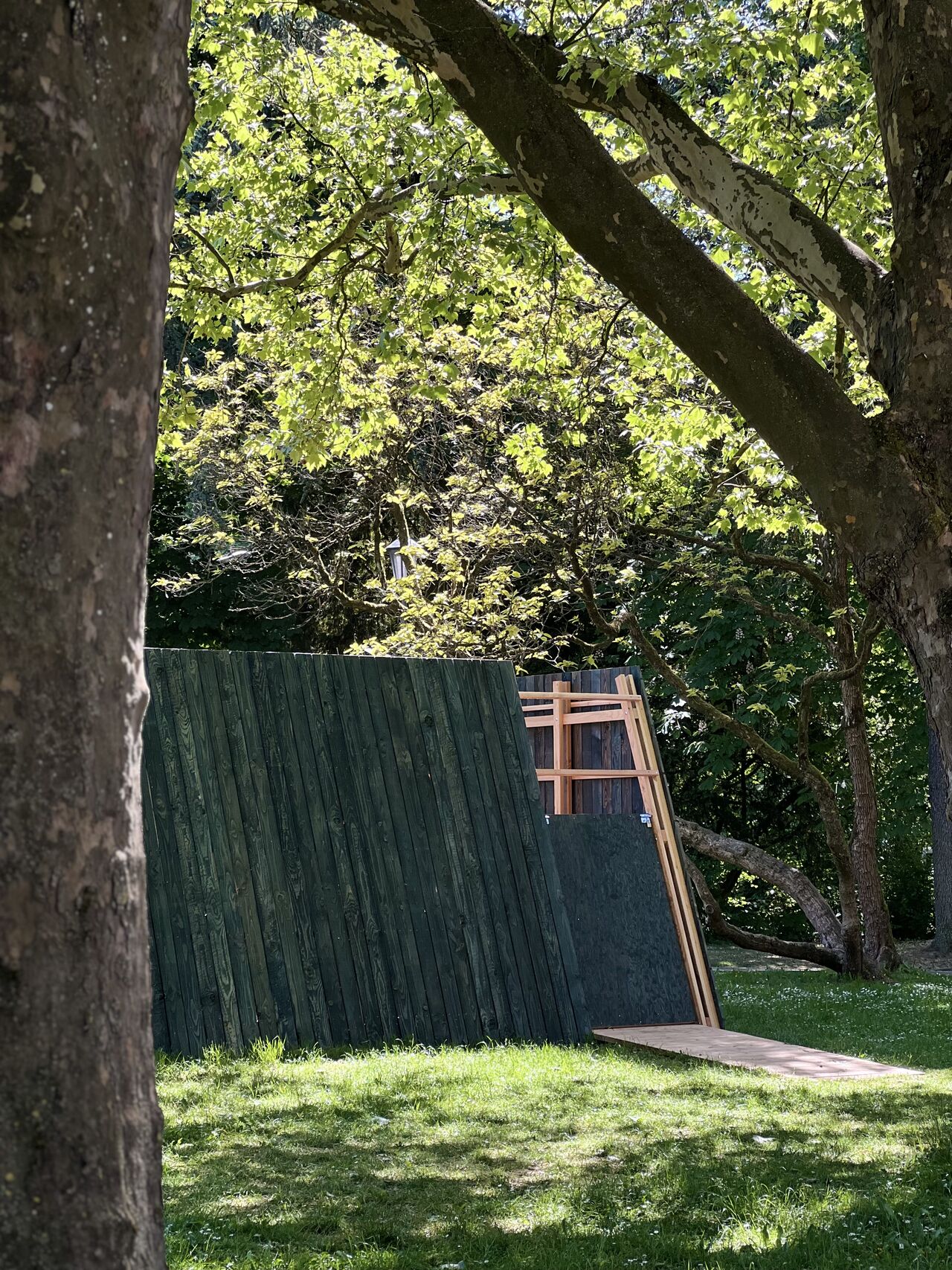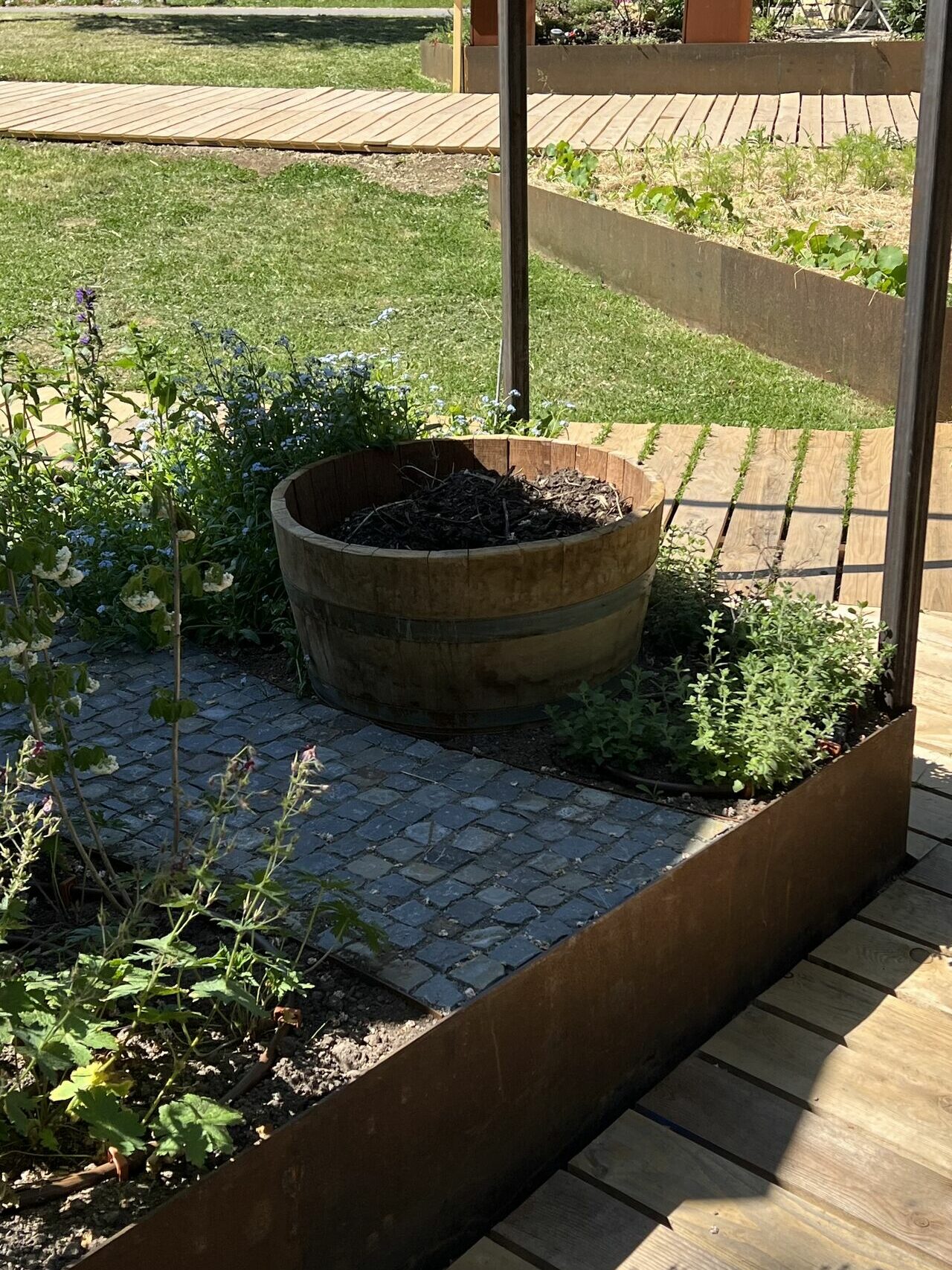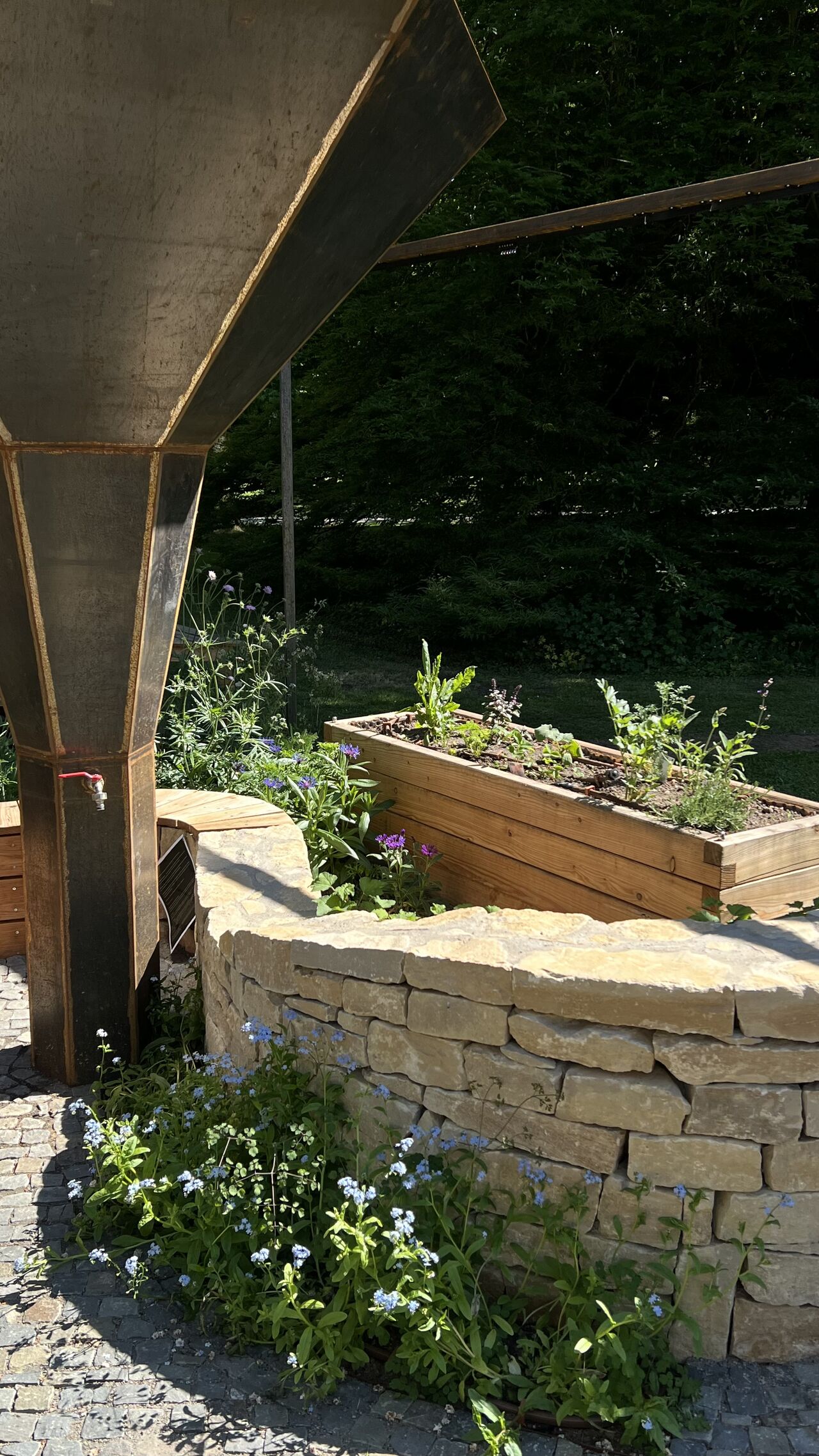LUGA – Luxembourg Urban Garden
LUGA, Luxembourg
Public space is often treated as a neutral backdrop for movement or leisure, rather than as a place for engagement, reflection, and free agency. The LUGA – Luxembourg Urban Garden open air installations in the municipal park of Luxembourg challenge this assumption by transforming passive viewers into active participants. Through small-scale ecological interventions — composting systems, rainwater harvesting, edible gardens — these temporary mini landscapes invite users not just to observe, but to actually act.
This participatory model reframes the role of the citizen in the urban environment. It demonstrates that change does not always require large-scale infrastructure, but can begin with spatial gestures that make room for individual initiative. In doing so, the installations blur the boundaries between designer, caretaker, and user — suggesting a more democratic, reciprocal form of public space.
Take, for example, the garden from Gillen’s Entre terre et ciel, which unveiled the often-overlooked wonders of the natural world—exposed roots, delicate mosses, wild plants, and magical rain-activated patterns using hydrochromic ink. Honestly, how often do we really notice exposed roots? It was a deeply poetic experience, making the invisible feel visible and inviting slowness, curiosity, and connection with nature in a whole new way.
Meanwhile, Une Nature Collective by Paysages & Pépinière – WAGENER-KOX offered a more systemic vision of participation. It reminded me that nature thrives through even the smallest human actions. Composting, rainwater collection, mirrored sunlight—each of these elements is there for an “anonymous walker” to nourish the garden. Not through machines, but through thoughtful, intentional design. This is a shared space where every human action counts.
As Martin Westin argues, planners hold responsibility for realizing the democratic potential of participation. These gardens operationalize that idea, using design to cultivate not only nature, but a sense of agency.
The question is no longer whether people belong in public space — but how they are invited to shape it.


